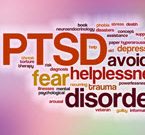Convincing the Social Security Administration PTSD Is a Disability

Disabilities, in the context of Social Security Disability Insurance (SSDI), are frequently associated with physical conditions that limit a person’s ability to function on a basic level and/or perform required tasks at work, and a significant number of disability claims are, in fact, based upon physical impairments. However, another branch of debilitating conditions exists that is harder to detect or prove because they are primarily based in the mind, and thus, are less easily observed. Mental disabilities generally stem from genetics, an injury or past trauma. Mental difficulties following exposure to traumatic experiences is a big issue among soldiers and first responders because they repeatedly experience high-stress life or death situations that can erode a person’s mental stability and sense of security. But, PTSD can also affect those who suffered sexual assault, child abuse or a serious accident. This condition, known as Post Traumatic Stress Disorder (PTSD), is a panic disorder that can substantially interfere with a person’s life, and often manifests as frequent flashbacks, constant anxiety, and difficulty concentrating, among other symptoms. Severe cases of PTSD can form the basis of an SSDI claim, but substantial documentation will be needed since a diagnosis requires more subjectivity than other conditions. A discussion of what the Social Security Administration (SSA) looks for in PTSD disability claims, and how best to document this condition to increase one’s chances for approval, will follow below.
What Constitutes Severe PTSD?
Approval for SSDI benefits comes in one of two ways: satisfying the requirements of the SSA’s disability listing for PTSD, or receiving a medical vocational allowance if a claimant can show the impairment prevents him/her from working. Neither method is necessarily easy, but the SSA did recently add PTSD to the list of recognized disabling conditions, which at least clearly outlines what a claimant must establish. Under the listing guidelines, a person claiming PTSD as his/her disability must provide medical documentation of the following:
- exposure to actual or threatened death, violence or serious injury;
- involuntary episodes reliving the traumatic event;
- mood/behavior disturbances;
- avoidance of outside reminders of the trauma; and
- a hyper-activated startle response or severe sleep disturbances.
In addition, the claimant must show extreme or severe limitations in mental functioning, specifically related to:
- understanding, remembering or applying information;
- interacting with others;
- concentration or maintaining a consistent pace; or
- adapting to situations/environments.
A person must have documentation of extreme limitations in one of the above areas, or two areas with severe limitations. Alternatively, for those living in structured or supervised environments, the SSA will grant benefits if there is documentation of serious and persistent limitations caused by PTSD over the last two years that are only marginally improved with medical treatment.
Documenting the Condition
PTSD is traditionally treated with psychiatric and psychotherapy treatment, and this is the type of treatment the SSA will expect to see. Consequently, claimants will need to provide robust documentation of all in- and out- patient psychiatric treatment and notes from counseling/therapy sessions. While the SSA typically limits records requests to the previous year, all relevant records beyond the one-year point can serve to strengthen a disability claim, and should be provided as well. Additionally, a residual functional capacity assessment (ability of a person to function at work) by a claimant’s doctor increases the likelihood of approval, and should be obtained if possible. Finally, third-party statements by friends, family and/or former co-workers that discuss interactions and observations with/of the claimant can also be helpful for gaining approval of SSDI benefits.
Get Help
Fighting to receive disability benefits from the SSA can quickly start to feel like a losing battle if you go it alone. Hiring an experienced disability attorney greatly increases your chances of approval, and takes the pressure off of figuring out the complex rules that apply to disability claims. Farrell Disability Law can help you get the money you deserve, even if your claim was already initially denied. If you live in Jacksonville, Neptune Beach, Middleburg or the surrounding area, contact us for a free consultation.
Resource:
ssa.gov/planners/disability/dqualify5.html









